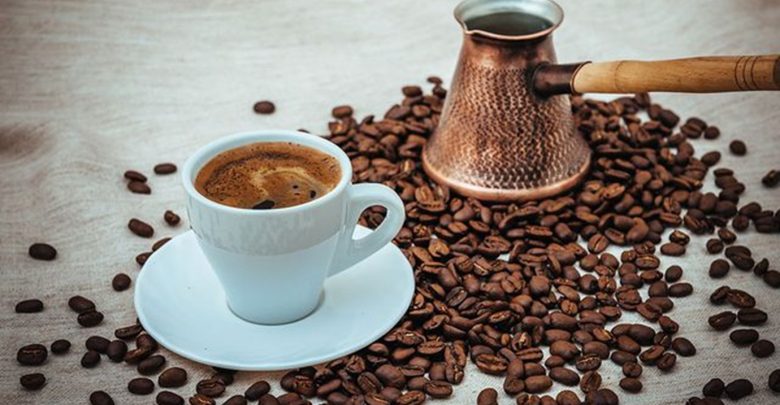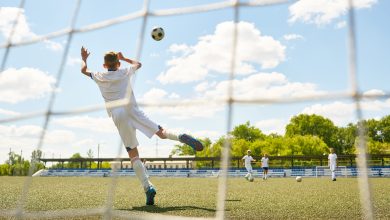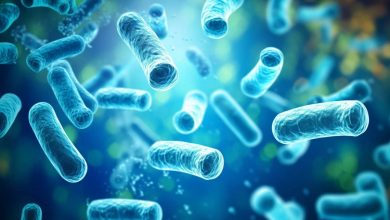
Do you allow your child to drink caffeine?
هل تسمح لطفلك بشرب الكافيين؟
These days it’s not unusual to see toddlers and other children sitting with their parents and enjoying a babycino (frothed milk with chocolate powder on top) as their parents sip on their latte or flat white.
But in what could be a more disturbing trend, more children and teenagers than ever before are drinking real coffee with 15% of Australian teenagers drinking coffee regularly and even a small percentage of 2-3 year olds reported as coffee drinkers.
Caffeine consumption amongst children and teenagers is further increased with the prevalence of energy drinks such as Monster and Red Bull on the market.
In America, 75 percent of children now consume caffeine on a daily basis. And in the UK, a poll found that one in twenty British teenagers were going to school each day on a can of energy drink instead of breakfast.
Why do Children Want to Drink Coffee?
Most of us will remember our parents and other “non-cool” adults drinking coffee, often instant and usually with a very bitter taste. These days however, celebrities are often snapped with a takeaway coffee cup in hand promoting the “cool” factor which encourages children, and especially teenagers, to follow.
Add to that the increased availability of sweetened iced coffee drinks, coffee toppings such as cream and chocolate swirls, and TV commercials showing people being animated after drinking coffee and other energy drinks, and you can start to see why these drinks become popular with the younger generation.
Is it Bad for Children to Drink Coffee?
The general consensus seems to be that yes, it is bad, for children to drink coffee. The Livestrong website provides a comprehensive list of reasons why:
- Insomnia: Children ages 5 to 12 need at least eleven hours of sleep per day, and teenagers need nine to ten hours. Coffee is a stimulant and can last in the body for up to eight hours, contributing to loss of essential sleep for young people.
- Cavities: Coffee is acidic and can cause cavities and a decrease in tooth enamel. It can take years for new enamel to harden once adult teeth have come in and children that drink coffee are more likely to experience oral health issues as a result.
- Decreased appetite: Growing children and teenagers need a balanced diet with lots of nutrition. As an appetite suppressant, coffee is likely to make children eat less and miss out on essential proteins, nutrients and minerals needed for growth.
- Bone loss: Coffee is a diuretic – it increases urine production. This in turn causes the loss of calcium from the body, which can lead to bone loss. For every 100 mg of caffeine ingested, 6 mg of calcium is lost. For children, calcium is essential for bone growth.
- Hyperactivity: As coffee is a hyper-stimulant, it can cause hyperactivity, restlessness and inability to concentrate. The effects can last as long as an entire school day and can have a negative effect on students who need to sit still and pay attention.
The National Institute of Health in the US goes as far as to say that caffeine should be completely restricted in a child’s diet as there is no nutritional requirement for it.
Does Anyone Say it’s OK?
According to Dr Tomas Depaulis, a research scientist at Vanderbilt University in the US, having a cup at a young age may actually be beneficial.
‘There was recently a study from Brazil finding that children who drink coffee with milk each day are less likely to have depression than other children,’ Depaulis said. ‘In fact, no studies show that coffee in reasonable amounts is in any way harmful to children.’
In contrast to the problems highlighted by Livestrong, Dr Depaulis adds that coffee in moderation may even help to improve concentration in children thus leading to better outcomes in tests.
Other proponents say that exposing children to “adult” drinks such as beer, wine and coffee early, as often happens in Latin American and European cultures, helps them to develop the tools to handle these items responsibly as they get older.
What does FSANZ say about Coffee Consumption Amongst Children?
Food Standards Australia New Zealand (FSANZ) state on their website that there are currently no recognised health-based guidance values for caffeine.
However, a FSANZ Expert Working Group analysed the available literature in 2000 and concluded that there was evidence of increased anxiety levels in children at doses of about 3 mg of caffeine per kilogram of bodyweight per day.
For children aged 5-12, this equates to increased anxiety levels being experienced from a caffeine dose of 95 mg per day, which is approximately two cans of cola or a little over one serve of instant coffee.
source: foodsafety.com.au
في خضم التركيز على مخاطر استخدام السجائر الإلكترونية واستهلاك القنب الهندي والأفيون نغفل في أغلب الأحيان عن تسليط الضوء على تأثيرات استهلاك الكافيين على الأطفال والمراهقين.
ويستهلك نحو 75% من الأطفال والمراهقين الكافيين بشكل منتظم، وغالبا ما تكون الجرعات المسموح بها نحو 25 مليغراما في اليوم للأطفال الذين تتراوح أعمارهم بين السادسة والحادية عشرة، و50 مليغراما في اليوم بالنسبة للمراهقين.
ووفقا لدراسة طبية حديثة نشرت في مجلة الأكاديمية الأميركية للطب النفسي للأطفال والمراهقين، فإن كمية الكافيين الموجودة في بعض المنتجات الشائعة هي كالتالي:
الصودا (12 أوقية) نحو أربعين مليغراما، القهوة (8 أوقيات) نحو مئة مليغرام، الشاي (8 أوقيات) نحو 48 مليغراما، مشروبات الطاقة (12 أوقية) نحو 150 مليغراما.
وقد تكون الكمية الفعلية الموجودة في المشروبات التي يتم شراؤها أكثر من ذلك، وذلك وفقا لمقال لاختصاصي علم نفس الطفل ديفد ريتوي، ونشر في مجلة “سيكولوجي توداي”.
وباعتبار الكافيين مادة منبهة فإنه قد يزيد الإثارة واليقظة والسلوك الحركي لدى الشباب. وعلى الرغم من أن بعض الدراسات كشفت عن بعض الجوانب الإيجابية في عدد من الاختبارات الإدراكية التي أجريت للأطفال عند تناول جرعات معتدلة من الكافيين فإنها تبدو جلية أكثر بالنسبة للأطفال الذين يتناولون كميات قليلة منه في الأساس.
ولكن استهلاك المشروبات الغنية بالكافيين لا يخلو من بعض الجوانب السلبية، من بينها تأثيره على نمط النوم، والتقليل من الشعور بالنعاس والإرهاق، مما يحفز الجسم على تناول المزيد من الكافيين خلال اليوم لتعويض ساعات النوم القليلة خلال الليل.
وقد يكون للكافيين تأثير سلبي غير مباشر يتمثل في أن المضاف منه إلى المشروبات التي تحتوي على كمية من السكريات قد يزيد استهلاك الأطعمة السكرية الأخرى حتى لو لم تكن تحتوي على مادة الكافيين.
والإفراط في استهلاك الكافيين بمعدل أعلى من أربعمئة مليغرام في اليوم بالنسبة للمراهقين ونحو مئة مليغرام في اليوم بالنسبة للأطفال يزيد المخاطر الصحية، مثل عدم انتظام ضربات القلب والانفعال وارتفاع ضغط الدم والقلق، كما أنه يعد سببا في بعض حالات الوفاة المفاجئة على الرغم من أن هذا الأمر نادر الحدوث.
كما أظهرت بعض الدراسات تأثير استهلاك الكافيين على الجسم على المدى الطويل، حيث ربطت زيادة استهلاك هذه المادة بظهور مشاكل سلوكية في المستقبل، مثل الغضب والعدوان والسلوك الجنسي المحفوف بالمخاطر واستخدام المواد المخدرة.
وقد أثبتت بعض الدراسات أن مشروبات الطاقة التي تحتوي على الكثير من الكافيين تمثل مشكلة في حد ذاتها، وقد يكون المراهقون المعرضون بالفعل لهذا النوع من المشاكل السلوكية هم الذين قد يسعون إلى تناول كميات كبيرة من الكافيين.
وفي الختام فإن الكافيين يعتبر آمنا بشكل عام عند تناوله بكميات قليلة أو معتدلة، في حين أن استهلاك كميات كبيرة منه يمكن أن يؤدي إلى حدوث بعض المشاكل الصحية والسلوكية لدى الأطفال والمراهقين.
ومن الضروري أن يكون الآباء أكثر يقظة لمراقبة استهلاك أطفالهم للكافيين، ناهيك عن الوقت الذي يتناولون فيه المشروبات التي تحتوي على هذه المادة خلال اليوم.



